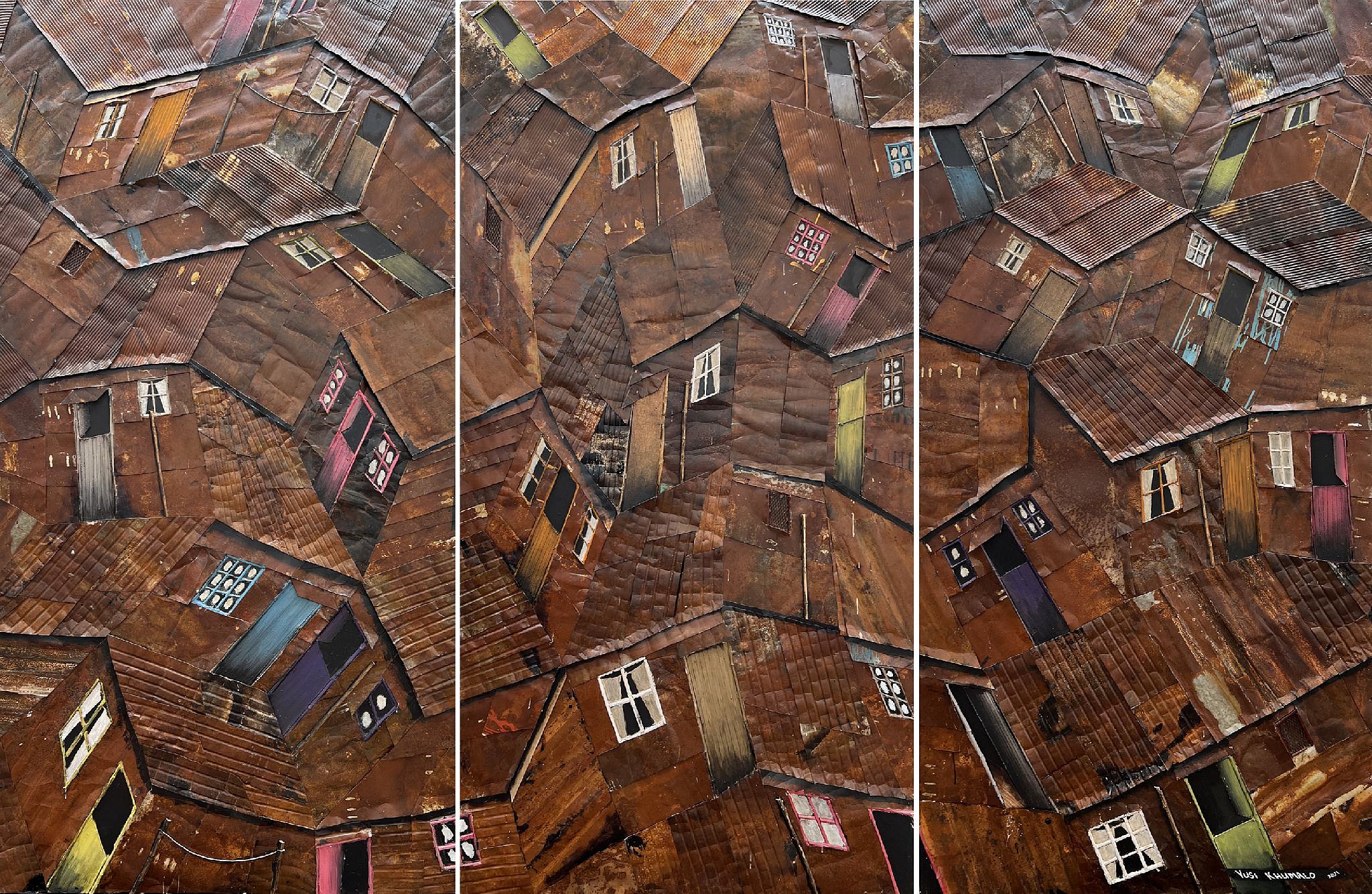PRESS RELEASE

VUSI KHUMALO: Uhambo Iwami (My Journey)
Sep 7 – Sep 24, 2022
Everard Read is delighted to present Uhambo Iwami – an exhibition of recent works by Vusi Khumalo.
"Recording tomorrow’s history today."
Vusi Khumalo is a stalwart of the South African art scene, this being his 14th solo exhibition in the course of three decades, mostly at Everard Read. Khumalo at 71 has crafted a formidable body of work that shows off his unflinching eye for composition and perspective, rhythm and colour as he continues to delve into the complexities of his muse, the “terrible beauty’’ of the informal settlements of South Africa. Khumalo was first struck by the idea of "recording tomorrow's history today" when he returned from exile. The scrapping of the Group Areas Act enabled the flourishing of the shanty towns around major cities for the hitherto excluded and dispossessed citizens who had had to commute, often huge distances from "reservations", to work in the city. The burgeoning shacks and settlements that mushroomed, seemingly overnight, appeared to Khumalo like organic symbols of both hope and desperation. As he wrote in 1996:
We are Shacks – Singamatyotyombe
And we are here to stay
For poverty is our permission for existence
Khumalo’s genius lies in his ability to craft such exquisite artefacts that they seduce the viewer into confronting, in mindboggling detail, the reality of living in these now-normalised Manscapes. When he began unpacking informal settlements thirty years ago, they were an anomaly. Now, they may as well be called formal informal settlements as they have entrenched themselves into the daily reality of South Africans. And as they continue to grow and densify, so Khumalo’s reflections become all the more claustrophobic and crowded, often with no horizon. Increasingly, Khumalo distorts the perspectives until walls, roofs and floors blur into each other, creating chaotic and cacophonous impressions. Like his much beloved South African Jazz, Khumalo seems to collect and tabulate lived human experience here. He synthesizes concentrated distillations that sing of misery and dignity; of chaos and harmony; of displacement and an assertion of ownership.
In her foreword to a catalogue of Khumalo’s work in 2005, Hazel Friedman wrote:
At once his works communicate a sense of immediacy, history and prophecy. These are uncomfortable reminders of a legacy of dispossession. In the context of the country’s current, escalating housing problems, they encapsulate the magnitude of the crisis as eloquently and succinctly as the photojournalists lens. And they warn of the potential consequences for a country whose great expectations have been short changed by unemployment, poverty and homelessness…
Khumalo has resisted the well-worn formula of prettifying poverty. Resorting to neither sentiment nor didacticism, he imbues his narratives with a documentary, no-frills resonance. The figures populating these informal-scapes are neither idealised nor individualised. But one has the sense of their resilience in the face of hardship. A washing line here, a garden there serve as reminders that life goes on for communities still stranded outside the rainbow.
Seventeen years later not much has changed except the intensification of the same.
In his seventies, Vusi Khumalo remains a lion of a man whose delight in razor-sharp observation and laborious craftsmanship is matched only by his love of his family, yoga, walking and jazz. Similarly, the scars of a life hardened by struggle, exile and bitter-sweet homecoming are tempered by his almost wilfully naive optimism, irrepressible creativity and delight in simplicity. His dedication to continuing to find new and profound ways of mirroring the human condition remains undinted, making him, in my eyes, a national treasure.
- Charles Shields (2022)
*Installation images by Mia Thom



